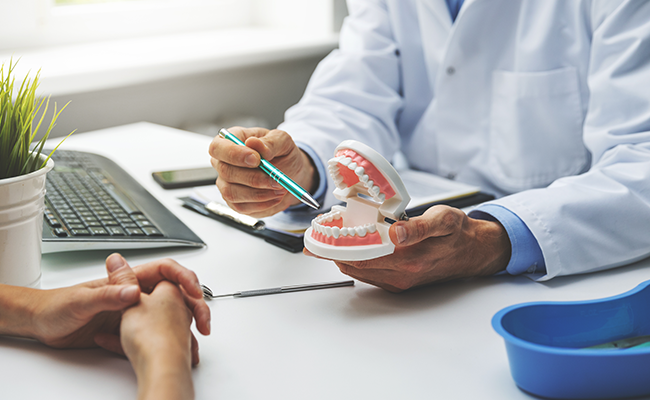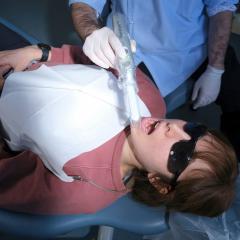 Research has identified a major gap in funding for dental research, identifying a need for more investment into oral health research to help combat the large burden of disease.
Research has identified a major gap in funding for dental research, identifying a need for more investment into oral health research to help combat the large burden of disease.
Professor Saso Ivanovski from UQ’s School of Dentistry said the research, conducted in partnership with the University of Melbourne and the University of Sydney, analysed levels of funding for oral health research by Australian government funding schemes.
“Oral health diseases are highly prevalent in the community affecting 45 per cent of people which is almost half of the population, surpassing numbers for any other noncommunicable disease,” Professor Ivanovski said.
“Every year there are approximately 70,000 preventable hospitalisations due to dental causes.
“We compared the allocated funding for the top 75 diseases with the highest disease burden which also included cancer, cardiovascular disease and neurological conditions.
“The findings show oral disorders had the lowest and most inequitable research funding based on the disease burden.
“This means that there is an urgent need to increase funding for oral science research, so that solutions and strategies can be found for alleviating oral disease burden and its impact on patients.”
The National Health and Medical Research Council (NHMRC) funding for dental disorders between 2017 to 2021 was $15 million, which equates to only 0.23 per cent of NHMRC funding for the top 75 diseases with the highest disease burden.
Professor Ivanovski said additional funding would help create prevention-focused oral health programs to address inequalities in dental healthcare.
“There is a concerning rise in the number of people experiencing toothaches and food avoidance because of dental problems,” Professor Ivanovski said.
“Among those most affected by poor oral health are people from socially disadvantaged groups.
“Socioeconomically disadvantaged children are 70 per cent more likely to suffer from oral health disorder and lower income adults more often experience financial burden on receiving dental services due to income inequalities.
“With more funding, researchers can increase their impact to ensure every Australian has equal opportunity to access good dental care and hygiene.”
The research is published in the Australian Dental Journal.


